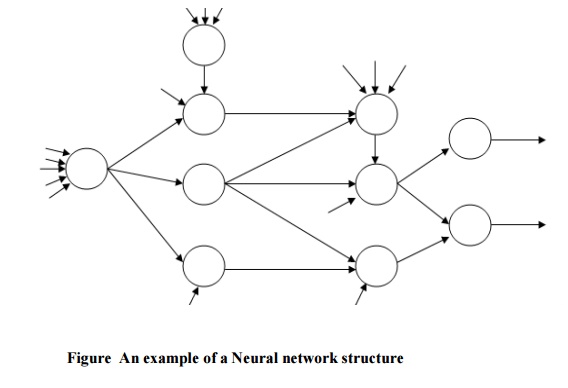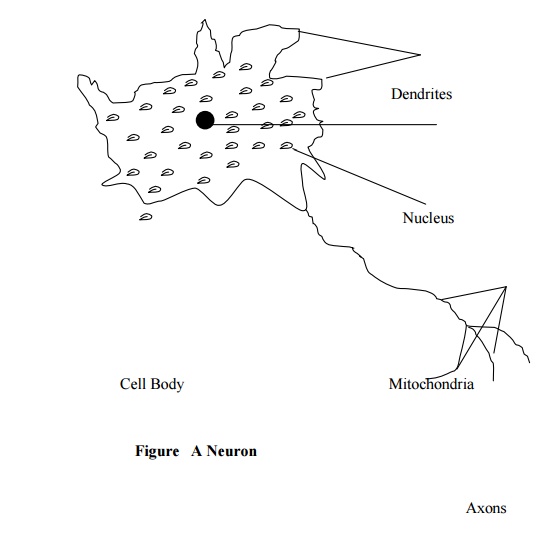Chapter: Artificial Intelligence
Neural Network
NEURAL NETWORK
A neural network consists of inter connected processing elements called
neurons that work together to produce an output function. The output of a
neural network relies on the cooperation of the individual neurons within the
network to operate. Well designed neural networks are trainable systems that
can often “learn” to solve complex problems from a set of exe mplars and
generalize the “acquired knowledge” to solve unforeseen problems, i.e. they are
self-adaptive systems. A neural network is used to refer to a network of
biological neurons. A neural network consists of a set of highly interconnected
entities called nodes or units. Each unit accepts a weighted set of inputs and
responds with an output.

A neural network is first and foremost a graph, with patterns
represented in terms of numerical values attached to the nodes of the graph and
transformations between patterns achieved via simple message-passing algorithms.
The graph contains a number of units and weighted unidirectional connections
between them. The output of one unit typically becomes an input for another.
There may also be units with external inputs and outputs. The nodes in the
graph are generally distinguished as being input nodes or output nodes and the
graph as a whole can be viewed as a representation of a multivariate functions
linking inputs to outputs. Numerical values (weights) are attached to the links
of the graphs, parameterizing the input/ output function and allowing it to be
adjusted via a learning algorithm. A broader view of a neural network
architecture involves treating the network as a statistical processor
characterized by making particular probabilistic assumptions about data. Figure
illustrates one example of a possible neural network structure.

Patterns appearing on the input nodes or the output nodes of a network
are viewed as samples from probability densities and a network is viewed as a
probabilistic model that assigns probabilities to patterns. Biologically, we
can also define a neuron. The human body is made up of a vast array of living
cells. Certain cells are interconnected in a way that allows them to
communicate pain or to actuate fibres or tissues. Some cells control the
opening and closing of minuscule valves in the veins and arteries. These
specialized communication cells are called neurons. Neurons are equipped with
long tentacle like structures that stretch out from the cell body, permitting
them to communicate with other neurons. The tentacles that take in signals from
other cells and the environment itself are called dendrites, while the
tentacles that carry signals from the neuron to other cells are called axons.

Related Topics